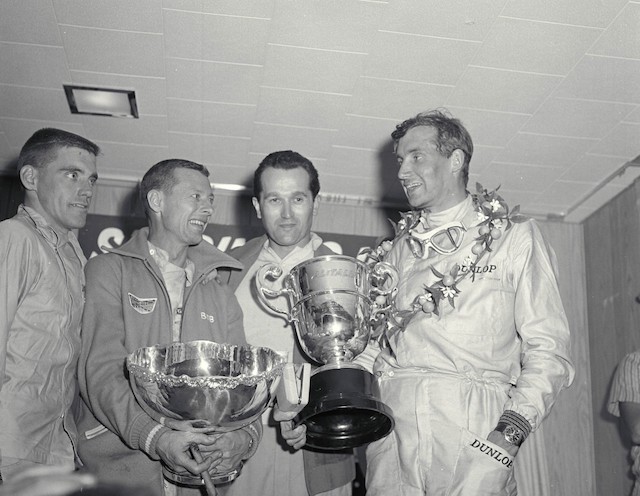COULD RACING SURVIVE WITHOUT THE POLITICS?
 Tuesday, April 24, 2018 at 09:37AM
Tuesday, April 24, 2018 at 09:37AM By Peter M. DeLorenzo
Detroit. From the lowliest club races to the biggest races in the world, racing is a swirling maelstrom of politics. It's about who has the power and who wants the power. It's about gaining advantages or at least preventing your competitors from gaining an advantage. It's about lobbying, cajoling, managing and control. And it involves everyone: the team owners, the manufacturers, the sanctioning bodies, the sponsors, the track owners, the promoters, and on and on and on. It has been a time-honored part of the sport since the very first race when the two competitors had to agree upon the basic parameters of the event.
Politics is everywhere in racing, from tech inspection disagreements to the fundamental decisions about the future of the sport itself, like what's going on in F1 right now. Manufacturers are never happy unless they lead every lap and win every race, but the organizers and sanctioning bodies can't have that because it would be boring and at times, unwatchable. But the manufacturers constantly campaign the powers that be in the hopes that an advantage will be gained, or, even more cynically, they "sand bag" when regulations are being formulated so that they might gain a winning advantage.
Political persuasion and politicking can go on behind the closed doors of motor coaches or it can blow up right out in the open for all to view. And much of the time, if not most of the time, the wishes of enthusiasts who follow and support the sport are ignored. Sure, they're paid lip service and thrown a bone now and again, but who's kidding whom here? Racing at the highest level is big business, and the parties who have financial skin in The Game call all of the shots.
I've said it here in this column many times before and I'll say it again, but politics is one of the most dismal aspects of the sport. But then again it's no secret that politics has been an integral part of the sport since the very beginning. Could the sport survive without it? I really can't envision that happening because after all, politics is about people. And as we all well know, people are flawed. But people make the sport what it is. Ask anyone in the sport, whether they're retired or currently involved, what they remember most about the competition - through the successes (or failures) - and they will tell you they remember the people, and the classic characters and endless stories. Even in the staid and regimented F1 paddock there are countless stories that we're not privy to that those involved will remember forever.
I often think of this story about that cantankerous genius, Smokey Yunick. As you probably know, Smokey pushed the envelope on everything, and his cars were works of art. Smokey's engineering creativity was legendary, and he enjoyed torturing NASCAR technical inspectors to no end. Smokey's cars would show up at Tech with several glaring things that were wrong, and the NASCAR inspectors would easily spot them and make Smokey correct them. But it was what they didn't see that really made Smokey's cars what they were, and he may have not invented this charade, but he was indeed the master at it.
Smokey was exasperating the NASCAR tech inspectors so much that after one particular race, when Smokey's car was running far longer on fuel than the competition, they simply had enough. So after the race they dismantled Smokey's car, even removing the fuel tank. After going over the car for a couple of hours, they didn't find anything out of line, so they told Smokey he could button up his car and leave. But his fuel tank was still removed and sitting on the ground, so Smokey and his crew obviously had work to do. Except that Smokey hopped in his car, started it up, and drove away. (He had cleverly hidden large-diameter fuel lines in his car that carried several more gallons of fuel than the rules allowed.)
That classic story is a reminder that politics in racing, whether it's a technical inspection fight or a major contretemps between manufacturers about the sport's future, is an inexorable part of the sport. And it would be pretty dull without it.
And that's the High-Octane Truth for this week.

(Dave Friedman photo)
Sebring, Florida, March 21, 1964. Dave MacDonald and Bob Holbert, with Umberto Maglioli and Mike Parkes after the 12 Hours of Sebring. MacDonald/Holbert won the GT5.0 class in their No. 10 Shelby American Cobra Daytona Coupe, finishing fourth overall. Maglioli/Parkes won the race overall in the No. 22 S.E.F.A.C. Ferrari 275 P.




